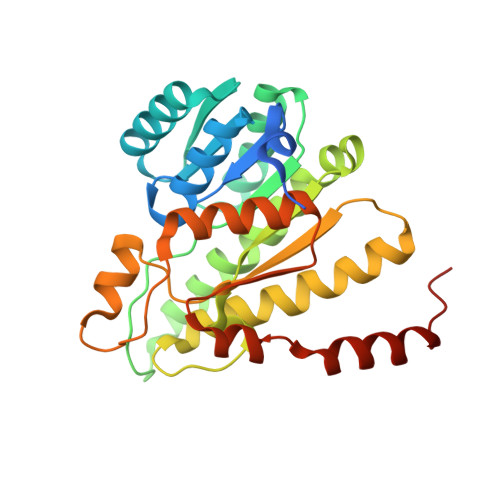Discovery of 3-hydroxy-4-cyano-isoquinolines as novel, potent, and selective inhibitors of human 11beta-hydroxydehydrogenase 1 (11beta-HSD1)
Wu, S.C., Yoon, D., Chin, J., van Kirk, K., Seethala, R., Golla, R., He, B., Harrity, T., Kunselman, L.K., Morgan, N.N., Ponticiello, R.P., Taylor, J.R., Zebo, R., Harper, T.W., Li, W., Wang, M., Zhang, L., Sleczka, B.G., Nayeem, A., Sheriff, S., Camac, D.M., Morin, P.E., Everlof, J.G., Li, Y.X., Ferraro, C.A., Kieltyka, K., Shou, W., Vath, M.B., Zvyaga, T.A., Gordon, D.A., Robl, J.A.(2011) Bioorg Med Chem Lett 21: 6693-6698
- PubMed: 21983444
- DOI: https://doi.org/10.1016/j.bmcl.2011.09.058
- Primary Citation of Related Structures:
3TFQ - PubMed Abstract:
Derived from the HTS hit 1, a series of hydroxyisoquinolines was discovered as potent and selective 11β-HSD1 inhibitors with good cross species activity. Optimization of substituents at the 1 and 4 positions of the isoquinoline group in addition to the core modifications, with a special focus on enhancing metabolic stability and aqueous solubility, resulted in the identification of several compounds as potent advanced leads.
- Bristol-Myers Squibb Research & Development, PO Box 5400, Hopewell, NJ 08534-5400, USA. shung.wu@bms.com
Organizational Affiliation:



















